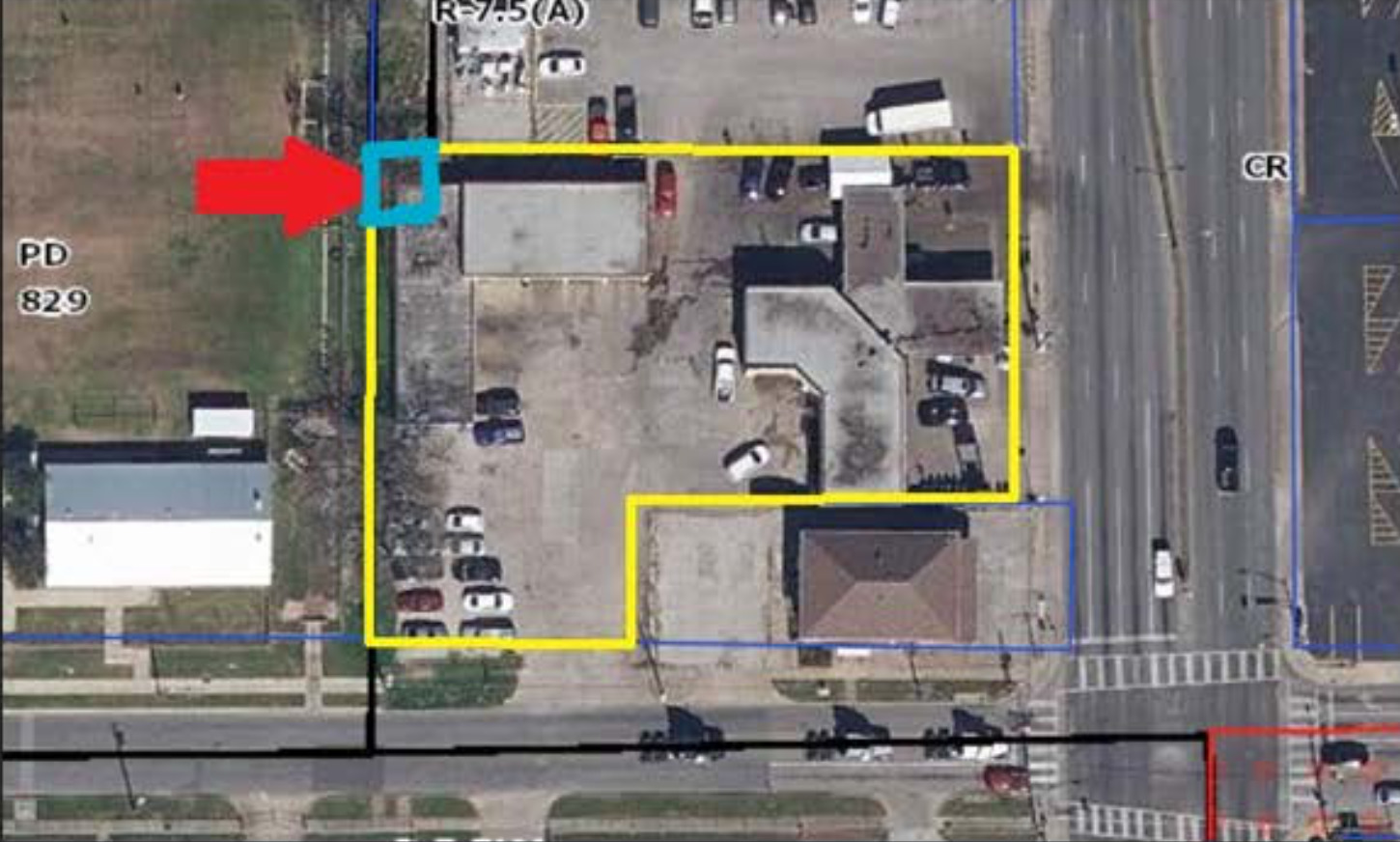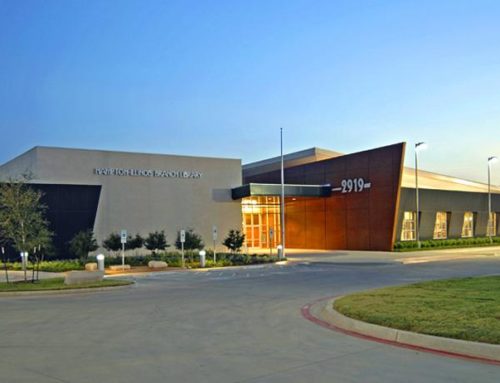
A graphic shows the proposed area Clear Water plans to develop in yellow, and the existing residentially zoned land in blue. Courtesy of the City of Dallas.
The City Plan Commission denied a controversial rezoning application that addressed a mere 490 square feet of land on the corner of W Twelfth Street and S Hampton Road Wednesday.
The application caused neighborhood frustration earlier this year after a Texas based carwash company, Clear Water Express Wash, revealed plans to build a large carwash on the property. Four businesses currently exist on the land, and business owners say they were not told the land was being developed for a new business prior to the rezoning application.
Letters from the North Cliff, Hampton Hills, Kessler Park Ravinia Heights and Sunset Hill neighborhood associations, as well as West Oak Cliff Coalition and Automotive Association of Oak Cliff were sent to city staff in the weeks following a January community meeting hosted by Clear Water, urging District 1 City Plan Commissioner Amanda Popken to deny the zoning request.
While the majority of the land in the development plan is currently zoned for commercial use, the rezoning application addressed 490 square feet in the northwest corner of the land that is zoned for residential use.
Popken said the incorrectly zoned square of land was likely the result of an administrative error.
After hearing opposition statements from eleven neighbors who attended the meeting, and after an attorney representing the applicant requested the application be withdrawn, Popken moved to deny the application without prejudice.
Victoria Morris, an attorney with Jackson and Walker, represented Clear Water and requested the application be denied without prejudice, which means it can be resubmitted in the future.
“We have not gone back to the drawing board, but we would like the opportunity to do so,” Morris said.
Morris did not say whether or not Clear Water plans to rework construction plans to build the carwash without including the back 490 square feet, however, as West Oak Cliff Coalition founder Christine Hopkins told the commission, Clear Water does currently have a location at the intersection listed on their website.
Clear Water Express Wash had not responded to a request for comment from the Advocate by the time of publishing.
Community members who spoke in opposition of the rezoning cited frequent accidents at the intersection, noise pollution, displacement of existing businesses, construction and the size of the business as reasons they disagreed with the carwash being built.
“This zoning change could displace up to 23 employees,” said Victoria Ferrell-Ortiz, executive director of the urban planning group Rayo Planning.
On top of those reasons, community members shared that they were upset that Clear Water’s carwash could not be addressed by the West Oak Cliff Area Plan, which passed last year and was created to address issues like this one, according to District 1 city council member Chad West.
“There was distrust about whether or not the city would follow through,” Hopkins said. “This application breaks WOCAP promises.”
Throughout the evening, city attorneys repeatedly reminded commissioners that their platform is only able to address the literal zoning application, and is not meant to dive into the carwash’s specific impacts and land use.
West said city employees were “locked in” an uncomfortable position when Clear Water’s zoning application was filed. The application squeezed into a gray zone following the passage of the WOCAP but before the start of authorized hearings for the various West Oak Cliff corridors it addresses.
“The villain here is the old zoning,” West said. “Authorized hearings are in the works but just haven’t happened yet.”
An authorized hearing process for Elmwood is set to begin next month, and West said hearings for the Hampton and Clarendon area will follow. West said he and Popken both “need to be committed to ensuring” that the Clear Water zoning application is “the last case in the WOCAP corridor” in which the city is not able to enact zoning changes that community members voice support for.
Ferell-Ortiz urged city employees to expedite the hearing for the Hampton and Clarendon corridor.
Before motioning to deny the application, Popken said that while the City Plan Commission does not have the authority to “give Oak Cliff what they want here,” denying the application would potentially limit a large corporation from coming into a neighborhood that voiced a desire to promote small businesses.
“This larger business stands to threaten the balance that current women and minority owned businesses have occupied,” Popken said. “Things are just fine the way they are.”




